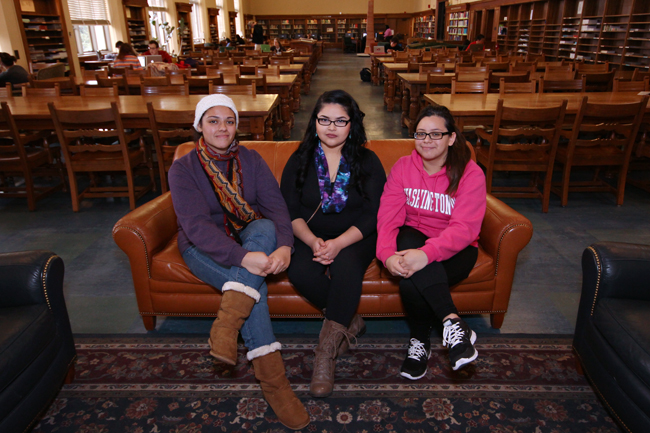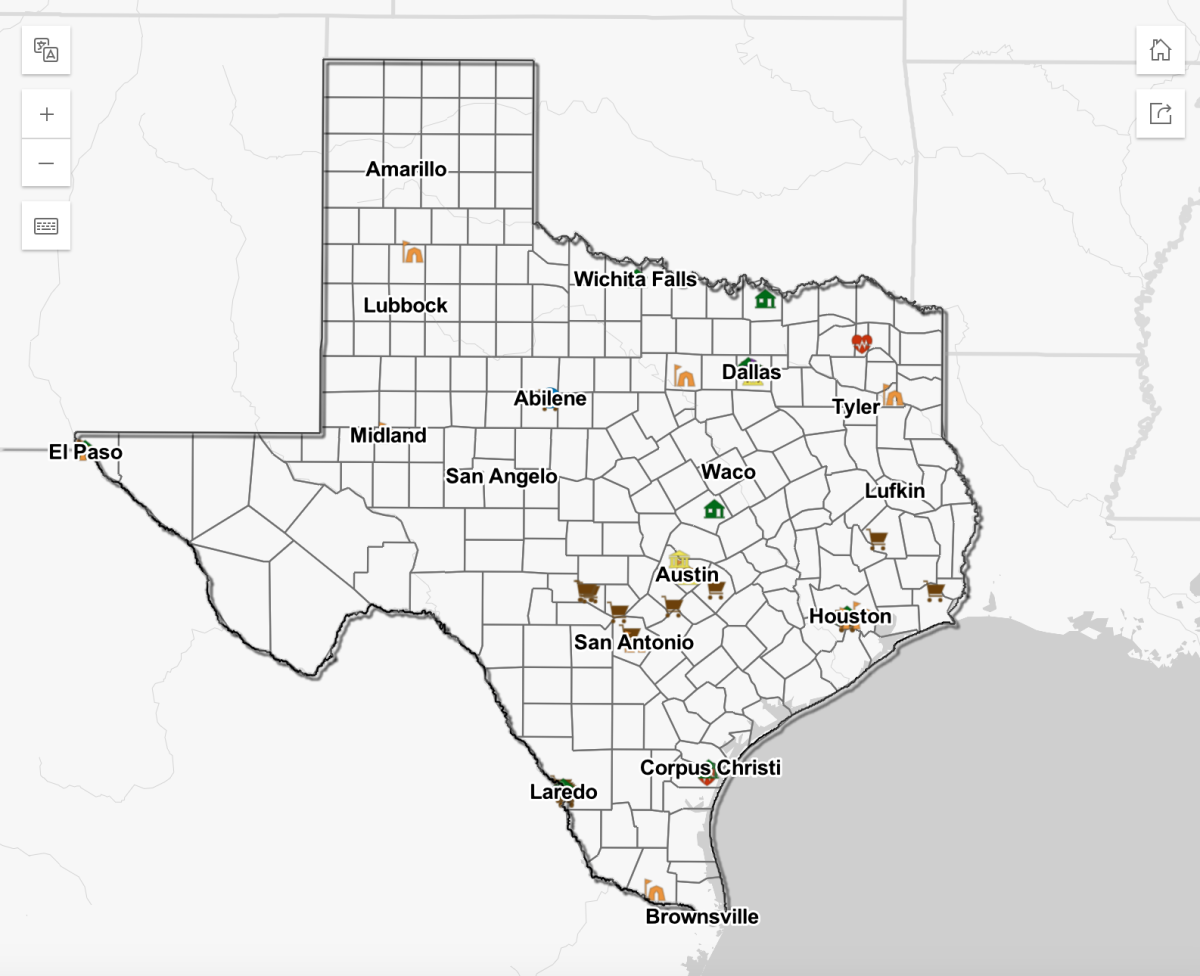One day after the start of the 84th Texas Legislative Session, lawmakers and students from across Texas gathered to rally in support of the Texas Dream Act.
The 14-year-old bill allows undocumented students to pay in-state tuition at any public university in Texas if the students have lived in the state for three years before graduating high school. Now that Gov. Greg Abbott is in office, some students and legislators say they fear the Dream Act is in danger. On the campaign trail, Abbott said he would not dissuade the legislature if it chooses to repeal the act.
Rhetoric and writing freshman Liliam Aviles, an undocumented student, made it clear she believes the Texas Dream Act is a misleading name; she prefers to refer to it by its legislative title, HB1403.
“The Dream Act doesn’t exist,” Aviles said. “The act would be a path to citizenship, and that’s not true with HB1403. The term ‘Dream Act’ is understood as something bigger.”
Aviles said the state’s Dream Act is often confused with the federal DREAM Act, an entirely different national bill that was introduced in 2001 but never implemented. The federal act would provide a path to citizenship for undocumented youths who arrived in the U.S. before the age of 16 and have completed at least two years in the military or a four-year college.
Republicans such as Lt. Gov. Dan Patrick have threatened the Texas Dream Act several times since it was first implemented in 2001. Patrick, who believes the act gives an unfair advantage to undocumented students when applying to college, made its repeal a staple of his campaign platform. Biology freshman Pamela Morales, who is undocumented, said she believes that argument does not hold weight.
“Some people like to say that we’re just here because of the bill,” Morales said. “That it’s incentive for people to come here. That isn’t true. We were raised as Texas residents. We got the grades. We did the work. I feel like I need to fight to prove that. I’m here because I want to work; I want to contribute to society.”
HB1403 opened doors for undocumented students by lessening their financial burden. Without in-state tuition rates, tuition for undocumented students would have nearly quadrupled. Business freshman Yesenia Mondragon, who is also undocumented, said she supports the bill but acknowledges its limitations. Mondragon said she first encountered those limitations when applying to college.
“I actually wanted to go out of state,” Mondragon said. “I wanted to learn more about other people, get a different perspective on things, but, because of my situation, I couldn’t qualify for scholarships or federal grants.”
Mondragon said her undocumented status did not severely limit her experiences until she entered high school.
“I feel like being undocumented as a kid doesn’t really affect you,” Morales said. “It isn’t really something your parents discuss with you, but, when other friends or classmates start getting their driver’s licenses or looking at different colleges, it really starts to hit you.”
Although their undocumented status occasionally presents these three girls with challenges, they said the sacrifices their parents made motivate them. Another source of motivation for Aviles was a college preparatory class. Beyond encouraging her to improve organizational and academic skills, the program inspired Aviles to continue her education.
“That class encouraged me to overcome the circumstances that set me apart,” Aviles said. “I started to realize I had options, which is something my parents didn’t have. They didn’t have the chance to do what I’m doing, so, for me, my situation isn’t an excuse. It’s a chance to do something my
parents couldn’t.”





















